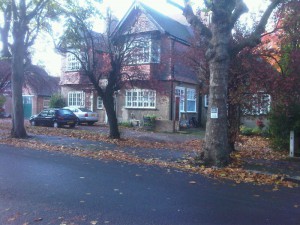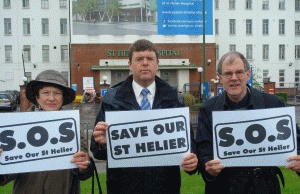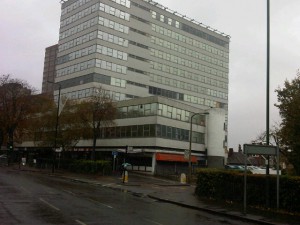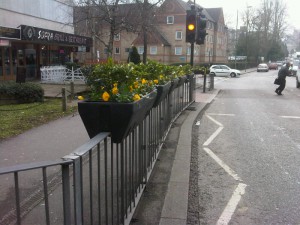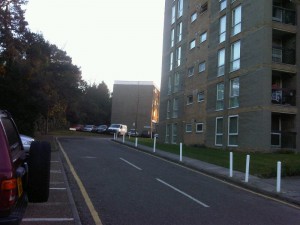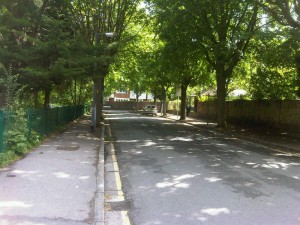
On the day when the House of Commons approved Government proposals to weaken planning law in respect of house extensions, Richard has drawn attention to the motion he successfully moved at the Sutton Council meeting last November, calling for this policy to be scrapped.
And he has congratulated our MP Paul Burstow on voting against the proposal.
The motion moved by Richard at the Council meeting on 5 November said:
“This Council opposes … the Secretary of State’s proposals for planning permission – currently required for extensions of more than three or four metres from the rear wall of any home – to only be needed for those reaching beyond 8m for detached homes and 6m for others.”
Richard says “Sutton Council passed my motion to call on the Government to change its mind. I am sorry it has not yet done so. This policy weakens planning law further and will lead to neighbour on neighbour disputes over ugly extensions. It is a recipe for neighbourhood disputes and the erection of ugly buildings that society does not want, and that we certainly do not want in Sutton. ”
The motion pased on 5 November was also critical of the envisaged interference of the Planning Inspectorate in local decisions on planning applications, affordable housing and section 106 contributions.
This is the full text of Richard’s speech:
“It is right that the London Borough of Sutton, which has been at the intellectual vanguard of so many policies in local Government, should be at the forefront in leading a campaign against the proposals of the Government to weaken planning law.
The motion is a balanced motion in that we are complimenting the Government on aspects of the announcement made on 6 September that we support, but we are making clear what we oppose.
We support proposals concerning the funding of new affordable housing, the refurbishment of empty homes, support for the FirstBuy shared equity scheme and support for housing associations.
But we are critical of the extension of permitted development rights, and the envisaged interference of the Planning Inspectorate in local decisions on planning applications, affordable housing and section 106 contributions.
What we are saying tonight is entirely consistent with our actions and our words on planning issues.
It is consistent with our words in that we had an excellent debate on planning policy at the Council meeting on 17 October last year. I remember speaking in that debate and noting what we have achieved in Sutton in adopting and refining a planning policy that has secured the green, pleasant, suburban character of Sutton that we all treasure. But we noted in that debate threats and concerns that arose from national policy. We welcomed many aspects of the National Planning Policy Framework but saw four difficulties with the planning system that should be addressed – and for each of these I could cite specific examples in Sutton South Ward:
1. that what is permitted development is already quite permissive and is leading to people building large and intrusive structures that should be brought within planning controls
2. that the planning system is slow moving in dealing with developers who are recalcitrant and play the system
3. the decisions of the Planning Inspectorate are sometimes inconsistent and unhelpful
4. the Courts do not always seem to take breaches of planning law seriously.
These problems remain but, sadly, the Government has not taken our advice set out in the motion we passed. Indeed, it has moved in an opposite direction in what is now proposed.
What is proposed seems to abandon the National Planning Policy Framework, does not address any of the problems that concerned us, and loosens further permitted development law.
I do not believe for one second that the relaxation of requirements to seek planning permission for extensions to domestic properties is going to unleash an avalanche of building work, thus creating jobs. To the extent that this happens, it follows that this will be through the erection of buildings that would not be permitted under current arrangements. So this is a recipe for neighbourhood disputes and the erection of ugly buildings that society does not want, and that we certainly do not want in Sutton.
I also particularly object to the way the package deals with affordable housing and section 106 contributions. Like most of you, I find that quite a lot of my casework as a Councillor involves families that are living in poor circumstances, often because they cannot find and afford accommodation that fits their needs. We desperately need more affordable housing. There are already “get out” clauses for developers who present financial analyses seemingly proving their development is unviable if they have to provide affordable housing. I am deeply suspicious of those processes and now there are to be further “get out” routes involving the Planning Inspectorate.
What we say in this motion is also consistent with our actions. We have adopted stringent controls on development to ensure it meets the local needs of Sutton, particularly on the development of major sites and on back garden development. We do not want these interfered with by remote bodies in Whitehall and Bristol.
We have worked hard to control development in Sutton in a way that meets what local people want. And so much flows from the way the character of the area is preserved by our planning policies, making it an attractive environment for businesses and families. I never tire of telling people of the virtues of Sutton – low crime, good schools, attractive leafy streets, good transport connections, voted the best place in London to bring up children, a local economy that is surviving the recession well. All these things, to my mind, hinge crucially on having an attractive local environment and street scene.
I hope these proposals will be re-thought.
I strongly believe, in the words of the motion, that it is local people, through democratically elected local authorities, who are the best judges of what development is acceptable in an area.
I commend this motion to Council.”

